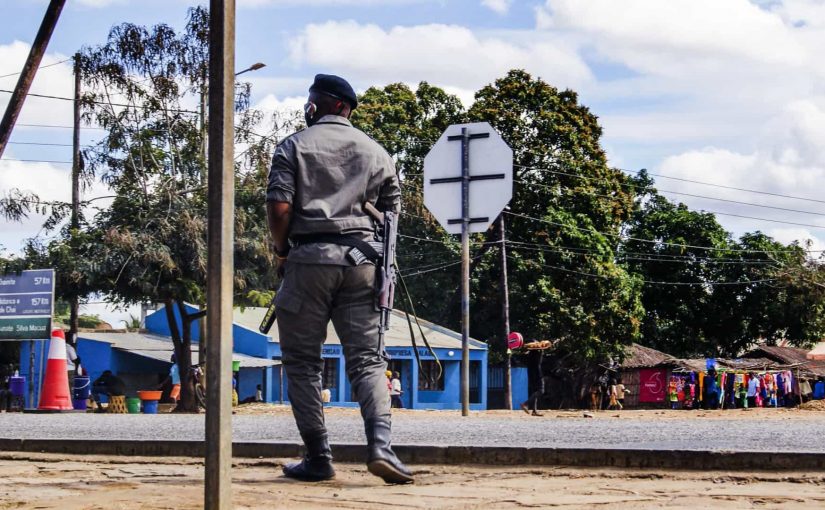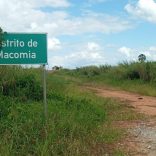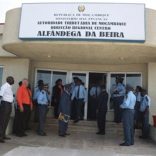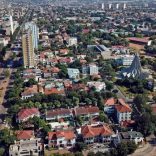Mozambique: Macomia in panic following terrorist incursion - AIM report
Mozambique: Analyst warns of risk if two levels of security are created

FILE PHOTO - For illustration +purposes only. [File photo: Lusa]
Researcher João Feijó, from the Observatório do Mundo Rural (Rural Observatory – OMR), warns today, in an interview with Lusa, of the risk of creating two levels of security in northern Mozambique: one for gas projects and the other for the rest of the province.
“This military solution must exist; there must be security on the ground, but the question that arises is: security for whom? Only for large investments by multinational TotalEnergies?” or “wider security, for the population?” he asks, in relation to the situation in Cabo Delgado.
Feijó, a sociologist with a doctorate in African studies, recalls that the French oil major has already announced that “it would only return once the population” had returned to the areas they fled, so “it seems that there is a collective effort on the part of these different players – TotalEnergies , foreign troops, national troops and the Government – to give priority to Palma and Mocímboa da Praia”.
TotalEnergies suspended the €20 billion project – the largest private investment in Africa – a year ago, after the armed attack on Palma, a town around which a new city and industrial complex had rising, to exploit the Rovuma gas reserves, some of the largest in the world.
After the attack, Mozambique accepted foreign troops from Rwanda and the Southern African Development Community (SADC) in an action that has been hailed by the executive chairman of TotalEnergies, Patrick Pouyanné, and cited as an example by French President Emmanuel Macron.
“Rwanda, in cooperation with the Southern African Development Community (SADC), has helped to provide an unprecedented response to the situation in Mozambique,” Macron said in February, adding that it was necessary to secure “financing” for, and promote such operations.
With access by land and by air still limited and dependent on military escort or authorisations from the Mozambican Defence and Security Forces (FDS), Palma “was cleansed and is being prepared” to receive “many civil servants”, Feijo says.
“They will return in the next few days, they have already been called” to reactivate services. The same type of return is being prepared for Mocímboa da Praia – a port town that was occupied by rebel groups for about a year, until August 2021.
“This Afungi, Mocímboa da Praia and Palma triangle will be the first with more security, precisely for the gas industry. There is great pressure to revitalise gas as soon as possible, because the government needs the revenue, and is counting on it to carry out other projects also,” he underlined.
Feijó admits that the urgency of restoring calm to the gas project area is legitimate, but “conscious decisions have to be made”, he says.
“If we are going to create two types of security, one around the megaprojects and the other outside, we are creating two types of citizenship and an enclave economy,” he said.
In other words, there is a risk of creating “an area of great investment and international presence, without connection with the surrounding economic fabric and that travels directly abroad”, without the “expected local content”, that is, the connections with the local business fabric.
And around this area of great investment, “we have 700,000 displaced people, undercapitalised”, with public services destroyed and who “continue to be the target of small attacks”, as has happened in recent months in the districts of Nangade, Macomia and Meluco.
“We have to be aware” that providing security as soon as possible to the gas projects triangle “can be good for the country, because it will generate revenue, but it does not solve the underlying problem” of social inequality.
“I am not against development; I’m warning of possible risks. I hope in three years’ time to say that I was wrong,” João Feijó added.
But, “Unfortunately, looking at other countries with similar characteristics, the ingredients are gathered for the situation to repeat itself,” he concludes.
Lack of coordination between players
Feijó also alleges that “coordination is lacking” between entities on the ground in Cabo Delgado.
“There is a lack of coordination between all the players,” – the government, humanitarian agencies, civil society and the military, the sociologist says, citing practical examples.
Rebels have been “swept out” of Rwandan garrisoned areas (such as Pundanhar), but then launch attacks on villages in areas guarded by Southern African Development Community (SADC) forces.
In July, 2021, at a turning point in the conflict, the Rwandan military force arrived, but the increase in the offensive against the rebels lacked humanitarian reinforcement: about two months later the World Food Program (WFP) reduced the ration distributed to the displaced for lack of funds.
“Without food, those who returned to their lands” prematurely, ending up falling “into the mouth of the wolf,” Feijó maintains.
Sympathetic Cabo Delgado people ceded land to the displaced for cultivation but later withdrew it when they saw that those fleeing the war had food aid from the authorities and they themselves did not have – a sign of the absence of anyone coordinating aid or promoting understanding, in Feijó’s opinion.
This lack of coordination extends to the absence of amnesty programs or reception camps for defectors, in coordination with local leaders who understand the population and are trained and able to create confidence in a new beginning for the young people leaving the insurgency.
Feijó says that the coordination between players can help to achieve goals seemingly in the realm of fiction, and is the only way to end a crisis of “representativeness” which leads to the exclusion – from forums of debate and local development. – of the young people who are the majority of traders in local markets or of the peasants who are the main active group.
With the strengthening of the military offensive and the loss of popularity of the insurgency, because of the destruction it has caused, “today it is more difficult for rebel groups to recruit new members”, Feijó observes, and this produces an opportunity to launch other actions to attract youth.
It is estimated that the conflict in Cabo Delgado has, since 2017, cost more than 3,100 lives, according to the ACLED conflict registration project, and displaced more than 859,000, according to the Mozambican authorities.
Read: State of education poses problem “more serious than terrorism” for Mozambique’s future – analyst












Leave a Reply
Be the First to Comment!
You must be logged in to post a comment.
You must be logged in to post a comment.